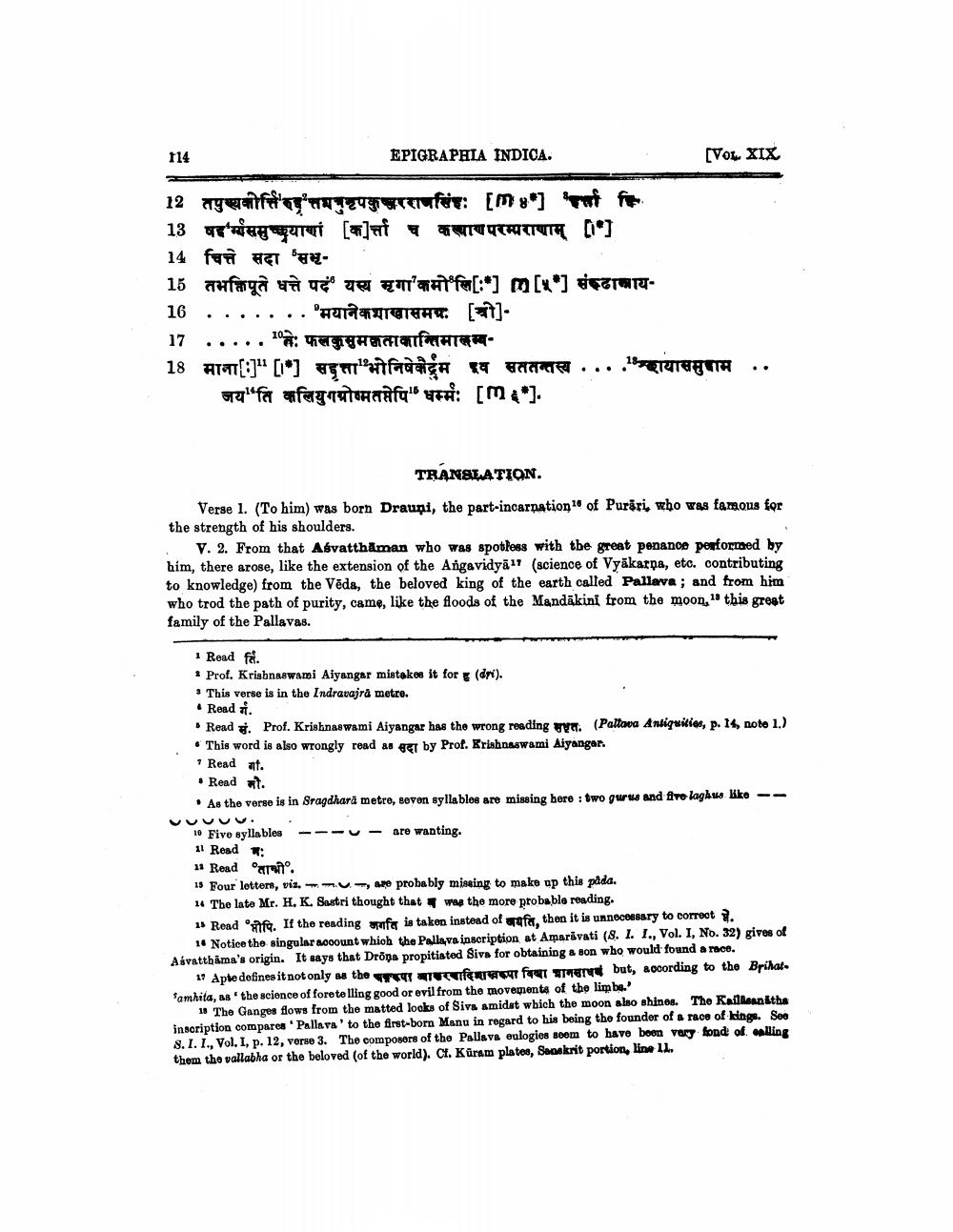________________
114
EPIGRAPHIA INDICA.
12
gwyngeugwcamftir: [My"] 'wat fe. 13 षद'समुच्छ्रयाणां [m]र्त्ता च कथाrपरम्परायाम् [] 14 चित्ते सदा सभृ
15 तभक्तिपूते धत्ते पदं यस्य मृगा' कमोलि [: * ] m[५] संकटाकाय "मयाने कशाखासम
16
[ची]
17... "मे फलकुसुमलताकान्तिमालम्ब
18 माना[:]] [[*] सद्वृत्ता" भोनिषेकैर्दुम इव सततन्तस्य जय" ति कलियुगपोष्ातसेपि" धर्म [m].
1 Read få.
* Prof. Krishnaswami Aiyangar mistakes it for (dri).
* This verse is in the Indravajra metre.
• Read .
[VOL. XIX
TRANSLATION.
Verse 1. (To him) was born Drauni, the part-incarnation of Purari, who was famous for the strength of his shoulders.
10 Five syllables
11 Read :
याससुवाम
V. 2. From that Asvatthäman who was spotless with the great penance performed by him, there arose, like the extension of the Añgavidya17 (science of Vyakarņa, etc. contributing to knowledge) from the Věda, the beloved king of the earth called Pallava; and from him who trod the path of purity, came, like the floods of the Mandakini from the moon, 13 this great family of the Pallavas.
..
13 Read
m°.
15 Four letters, viz., are probably missing to make up this påda.
14 The late Mr. H. K. Sastri thought that was the more probable reading.
Read. Prof. Krishnaswami Aiyangar has the wrong reading . (Paltova Antiquities, p. 14, note 1.) This word is also wrongly read as 4 by Prof. Krishnaswami Aiyangar.
Read at.
• Read .
As the verse is in Sragdhara metre, seven syllables are missing here: two gurus and five laghus like
www.
- are wanting.
1 Read fq. If the reading safe is taken instead of safe, then it is unnecessary to correct.
14 Notice the singular account which the Pallava inscription at Amaravati (8. I. I., Vol. I, No. 32) gives of Asvatthama's origin. It says that Drops propitiated Siva for obtaining a son who would found a race.
17 Apte defines it not only as the
ferrer far but, according to the Brihat Samhita, as the science of fore te lling good or evil from the movements of the limbe.'
18 The Ganges flows from the matted locks of Siva amidst which the moon also shines. The Kailisantha inscription compares' Pallava' to the first-born Manu in regard to his being the founder of a race of kings. See 8. I. I., Vol. I, p. 12, verse 3. The composers of the Pallava eulogies seem to have been very fond of calling them the vallabha or the beloved (of the world). Cf. Küram plates, Sanskrit portion, line 11.




